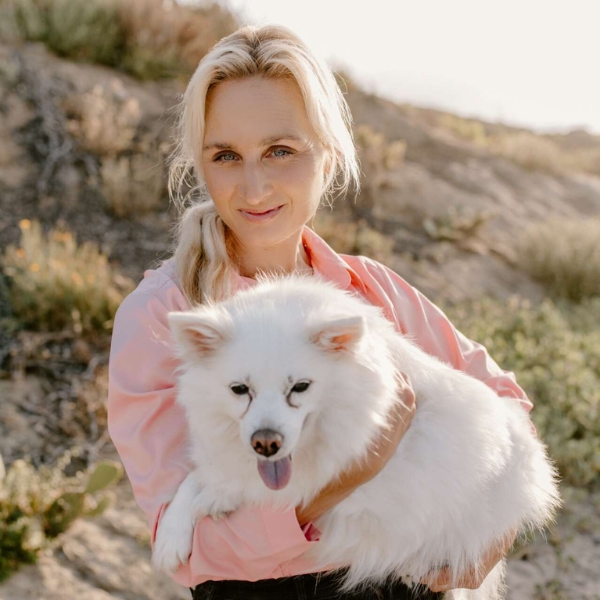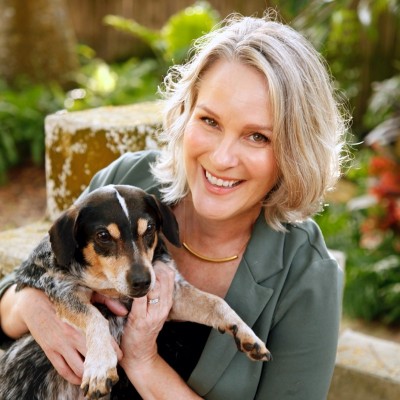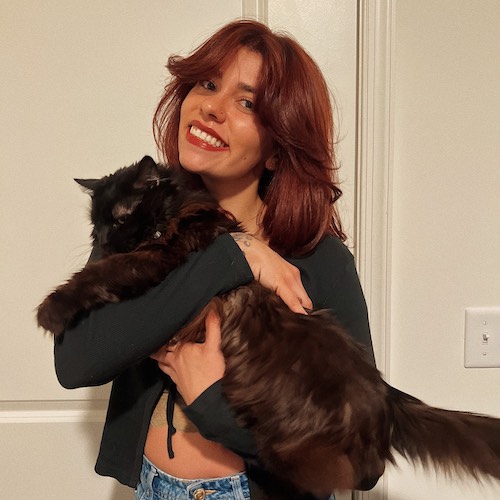You can trace the start of her veterinary journey back to the red earth of rural Brazil. Every winter and summer break, she left the bustle of São Paulo behind and headed to her grandfather’s farm, two hours away. It was there, surrounded by cattle, horses, sheep, and the sweet scent of orange blossoms and coffee trees, that she first felt connected to animals.
But the real reason she became a veterinarian wasn’t the farm life.
“It was Toby,” she said, smiling softly. “My first dog. My best friend. I got her when I was five, and we did everything together. I just knew I wanted to take care of animals the way I took care of her.”
By the time Toby passed away, she was already three years into veterinary school. In Brazil, vet students go straight into training after high school. Toby’s death shook her. But it also reaffirmed why she chose this path.
“That bond we had was so deep, and so personal that I wanted to help other people protect and honor that connection with their pets. Toby was everything to me.”

Rebuilding, Brick by Brick
She graduated from vet school with a strong foundation, having explored large and small animal medicine through externships across Brazil. From shadowing small animal vets in São Paulo to working on rural farms and even assisting at the Jockey Club, she soaked up every experience she could.
Then she moved to the United States. And everything changed.
“I had to start all over again,” she said. “New country, new system, new everything. I worked as a vet tech while going through the ECFVG process and doing my training through Tufts.”
That time was humbling.
“It taught me so much about veterinary technicians. Their knowledge, their resilience, their heart. I developed a deep, deep respect for what they do every day. I wouldn't be the vet I am today without that experience.”
Once licensed in the U.S., she joined a general practice clinic and learned what it meant to build trust, not just with patients, but with people.
“General practice taught me how important it is to really listen to clients. To make them feel heard and respected. You can’t care for a patient unless you have their trust.”
But after some time in GP, she began to feel pulled in a different direction. One that offered more variety, more freedom, and a chance to reimagine what her career could look like.
The Power of Saying Yes to Relief
She decided to give relief work a try. One clinic turned into five. And with each shift, her confidence and clarity grew.
“I worked across five clinics in one year, including a feline-only practice. That variety was exactly what I needed. Every clinic had its own rhythm, its own culture. And I loved figuring out where I fit best.”
Relief work didn’t just bring flexibility. It brought validation.
“In Maine, I started noticing something amazing. Clinic owners were talking about me. Recommending me to each other. One even offered me part ownership. That was the moment I realized, ‘Wow. I’m really doing something right here.’”
With every shift, she fine-tuned her boundaries and preferences. She learned what made a good clinic and what didn’t.
“I won’t work somewhere that books appointments under 30 minutes. That’s just not enough time to give patients the care they deserve.”
Her other non-negotiables? “I need a CVT with me during surgeries. I need dental X-rays. And I need a tech to show me the ropes. How the system works, where things are, how they communicate with clients. I can adapt fast, but I’m not a mind reader.”
She also avoids places that jumble appointments and surgeries throughout the day.
“It’s inefficient. It’s stressful. And honestly, it’s not safe. Surgery days should be surgery days. Appointments should be kept separate. Dentistry needs a full day because you never know what you’ll find once you get started.”
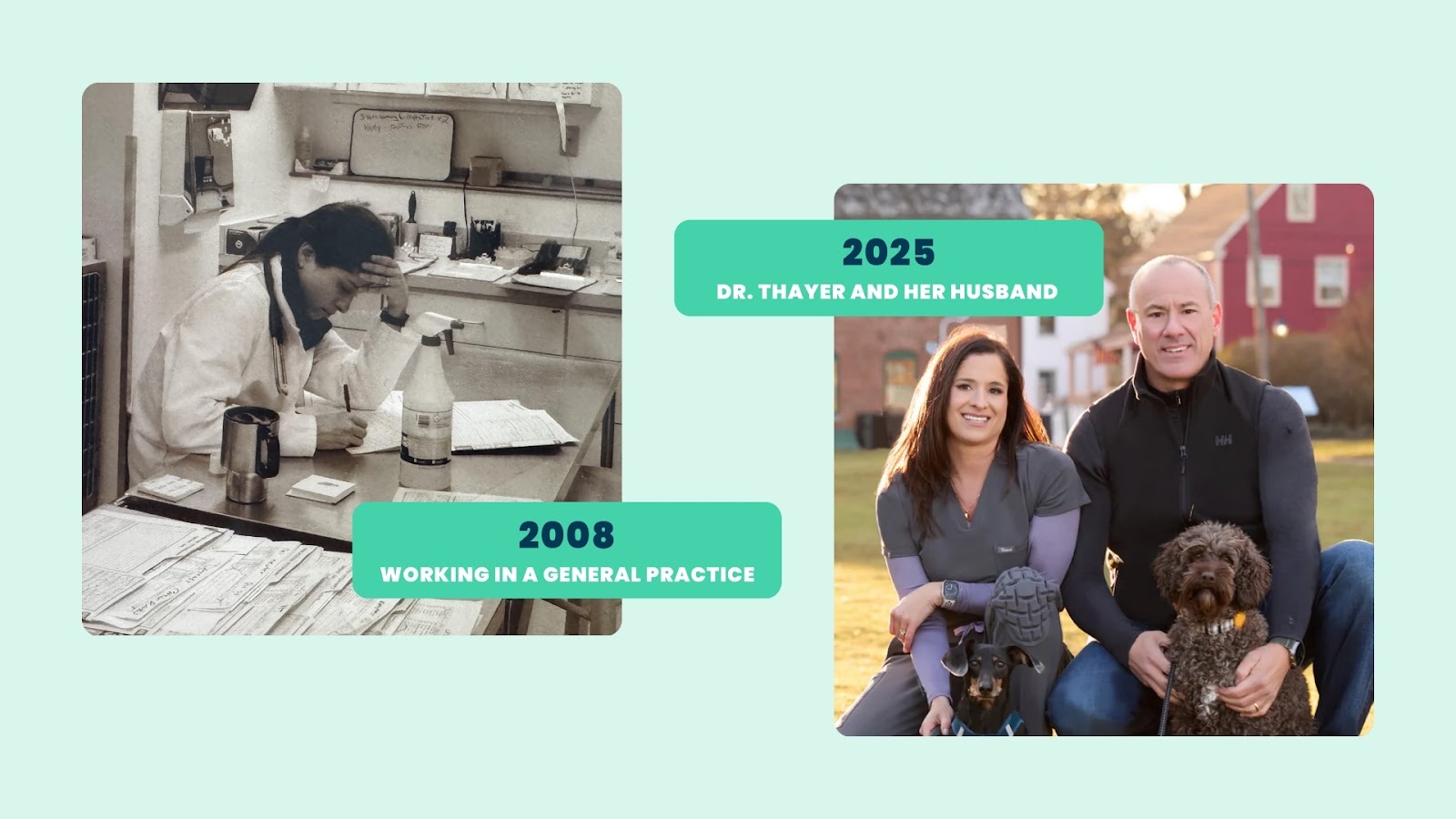
Dentistry Found Her
Amid the many years in the general practice, she saw the need for oral health care as periodontal disease is one of the most common disease affecting our pets.
“Dental pain is invisible. Pets don’t show it. The owners don’t know it. But it affects everything: eating, behavior, quality of life. Once I started focusing on dentistry, I couldn’t stop.”
She’s now dedicated the last 15 years to advanced dental training and continuing education. These days, she works as a per diem dental surgeon, bringing her expertise to two hospitals.
“The best part is when a client comes back and says, ‘They’re a totally different dog now. They’re playing again, being more energetic. Smiling again.’ That transformation? That’s what keeps me going.”
She shows up to every shift prepared. She brings her own dental packs. She owns an autoclave. She prints individualized anesthesia plans in advance. And she always brings snacks.
“I’ve learned what I need to do my best work. And I won't compromise on that anymore.”
The Unexpected Gift of Relief
One of the biggest surprises in this journey?
“How adaptable I am. I’ve learned that I can fit in quickly with almost any team. I show up with a good attitude, I stay open, and I try to be helpful. And people notice that.”
She’s had techs and vets ask for her input on cases. She’s been thanked for just being kind. She’s even helped clinics rework their dental workflows.
“Relief work has shown me that flexibility doesn’t mean ‘less than.’ It means freedom. It means building a life that makes sense for you.”
Her advice to vets just starting out in relief?
“Don’t walk in with judgment. Every clinic has its quirks. Most people are doing their best, even if it looks different from what you’re used to. Lead with curiosity and empathy. That will take you far.”
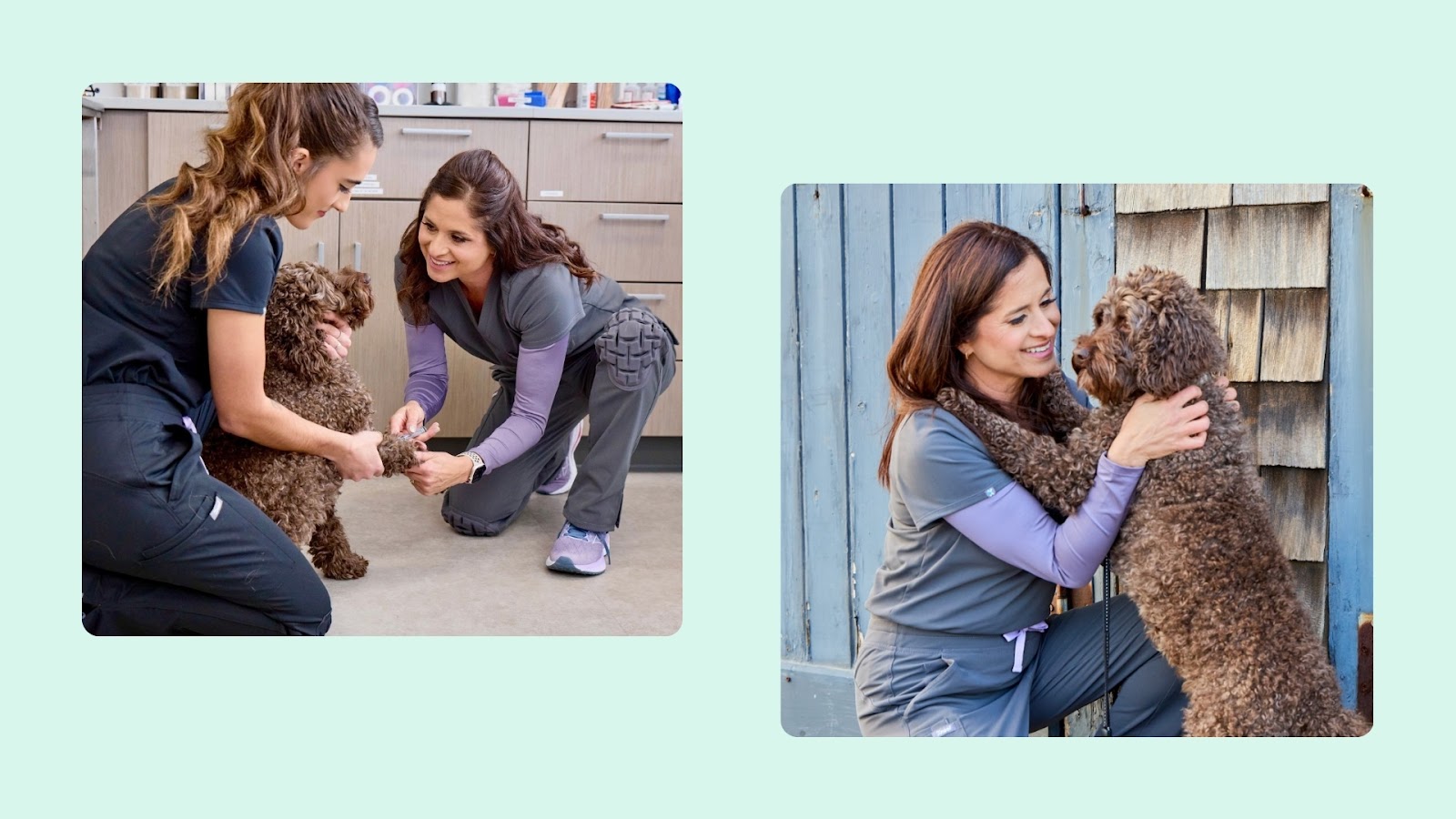
Outside the Clinic
When she’s not fixing teeth or mentoring teams, she’s working on something else: knees.
“I got tired of bruised knees after years of kneeling on hard floors. So I started a business called Kneel Workwear. We make medical scrubs with built-in kneepads, designed for vet teams.”
It’s a love letter to the profession. A way to give back and protect the people who bend, kneel, and crouch their way through every shift.
“I just want people to do what they love, without hurting themselves in the process.”
Outside of work, you’ll find her hiking mountain trails with her dogs, skiing in the winter, or laughing with friends over happy hour.
“I protect my time. I take at least one day off a week completely off. No surgeries. No emails. Just joy.”
What’s Next?
She’s dreaming big.
“I’d love to travel to shelters around the country, providing dental care and training staff. One day, I want to start a nonprofit that funds dental procedures for shelter pets. They deserve to be pain-free before they go home.”
And if she had one magic wish for vet med?
“Fair pay. Vet teams deserve to earn what human health professionals earn. And better pet insurance, especially for low-income families. We need to make care more accessible for everyone.”
Her story is one of resilience, reinvention, and relentless compassion. It’s proof that you don’t have to settle for burnout or one-size-fits-all career paths.
You can rebuild. You can change course. You can find joy again.
“I feel proud of what I’ve built,” she said. “It’s not perfect. But it’s mine. And that makes all the difference.”
And that’s what relief work is really about. Not just picking up shifts but building a life that actually fits.
Sign Up for the upcoming "Fundamentals of Dentistry" webinar or claim your Kneel discount.
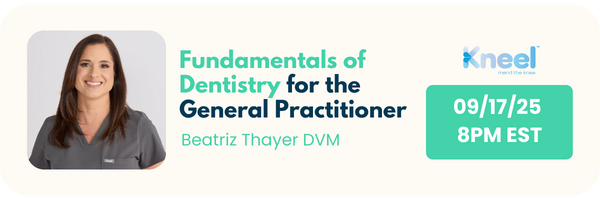



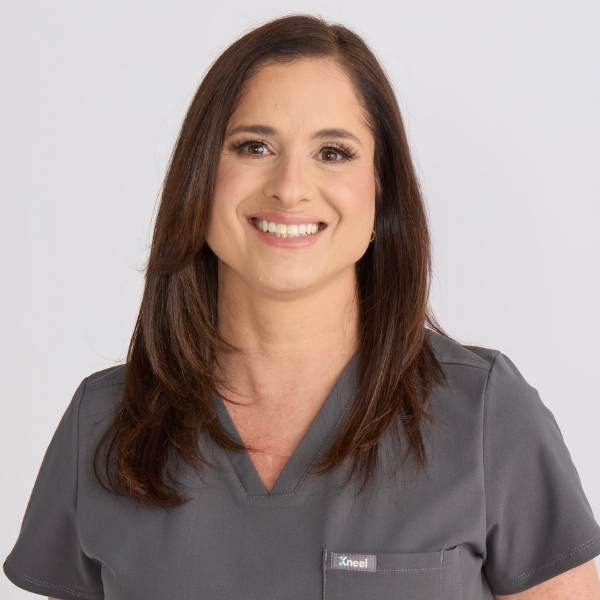
.gif)
